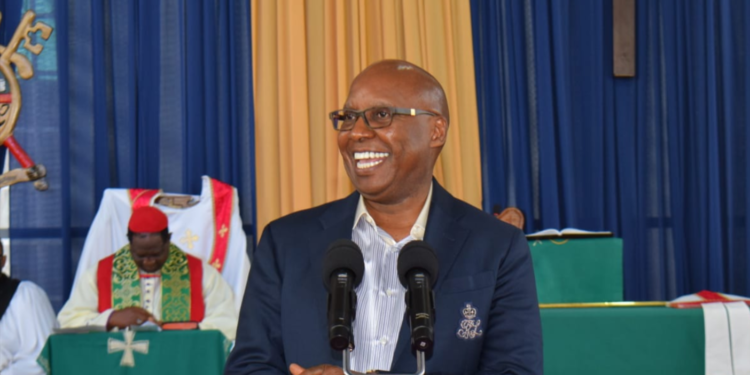Kenyan businessman and political strategist Jimi Wanjigi has disclosed a deep rift with President William Ruto and former President Uhuru Kenyatta, accusing them of betraying the very covenant that propelled them to power.
In an explosive interview with Citizen TV, Wanjigi detailed how his early support for the duo turned into disillusionment, culminating in what he describes as personal attacks and a call for Ruto’s resignation.
Jimi Wanjigi, once a key player in the rise of William Ruto and Uhuru Kenyatta to Kenya’s highest offices, has publicly aired his grievances against the two leaders, claiming they betrayed the vision they promised to uphold. Wanjigi, known for his behind-the-scenes influence in Kenyan politics, asserts that his relationship with the leaders began to sour when they chose to prioritize personal ambitions over the nation’s needs.
Wanjigi’s involvement with Kenyatta and Ruto dates back to 2013, during the height of their legal battles at the International Criminal Court (ICC). “I was involved in bringing them together because I believed their victory was necessary for the country,” he said. The businessman recounted how he supported their joint ticket, seeing in them the potential to unite the nation and deliver on promises of economic and social justice.
However, Wanjigi’s optimism was short-lived. According to him, once in power, Kenyatta and Ruto deviated from their mission, focusing instead on consolidating personal power and wealth. This shift, Wanjigi contends, was the beginning of his fallout with the pair. “We had a covenant to save this country, but they broke it,” he remarked, expressing a deep sense of betrayal.
The betrayal Wanjigi speaks of was not just political. He claims that his opposition to some of the administration’s policies led to a personal vendetta against him, culminating in a series of targeted attacks. Most notably, Wanjigi described a dramatic raid on his home by police forces, which he alleges was carried out without any legal basis. “My family was assaulted, robbed, and terrorized,” he said, painting a picture of a government willing to use its powers to silence dissent.
Wanjigi’s accusations extend beyond personal grievances. He is a vocal supporter of the protests that have been sweeping across Kenya, calling for President Ruto’s resignation. According to Wanjigi, Ruto’s administration is incapable of solving the problems it inherited and exacerbated. “Ruto must go,” Wanjigi stated unequivocally during the interview, aligning himself with the broader youth-led opposition movement that seeks to unseat the president.
The businessman’s disillusionment with Ruto stems from what he sees as a failure to address the core issues facing Kenya—issues that, in Wanjigi’s view, Ruto has only made worse. He criticized the administration’s handling of the economy, arguing that the rising cost of living, coupled with widespread corruption, has pushed ordinary Kenyans to the brink. “He cannot fix what he helped break,” Wanjigi argued, suggesting that new leadership is the only way forward for the country.
Wanjigi also touched on the broader implications of Ruto’s continued leadership, emphasizing that the current administration’s actions have eroded public trust in the government. He pointed to the widespread protests as evidence that the Kenyan people are losing faith in their leaders. “Under Article 1 of our Constitution, the power belongs to the people, and they have the right to take it back,” Wanjigi said, suggesting that the solution to Kenya’s political crisis might lie outside the traditional constitutional framework.
In calling for Ruto’s resignation, Wanjigi is not merely expressing personal animosity. Instead, he frames his demand as part of a larger struggle for Kenya’s future. He envisions a political realignment that would prioritize the interests of ordinary Kenyans over those of the political elite. “This is not just about Ruto or Kenyatta. It’s about saving the country,” he insisted, signaling his desire for a broader coalition that can challenge the status quo.
















